What takes up the most space in your brain? You are what you think about most often. Here is how my identity has shifted over the past decade and how that affects my daily habits, thoughts, and actions.
You Are What You Think
We all know the common phrase “You are what you eat.”
Recently I have been inspired by the phrase “You are what you think.”
The Space In My Brain: 2007
One of my favorite quotes is by Tony Robbins: “Energy flows where attention goes.” What takes up the most space in my brain today is very different than what occupied my mind in 2007 when I started this blog.
Back then, it was just me, a husband, and a budding career. I had SO MUCH TIME to spend on myself, and I spent a lot of that time thinking about cooking, workouts, and living the healthy life.
If I had a pie chart for my brain when I was 26 years old, self care and focusing on actions that helped me to be (what I then considered) my healthiest self would have been a huge portion of that pie.
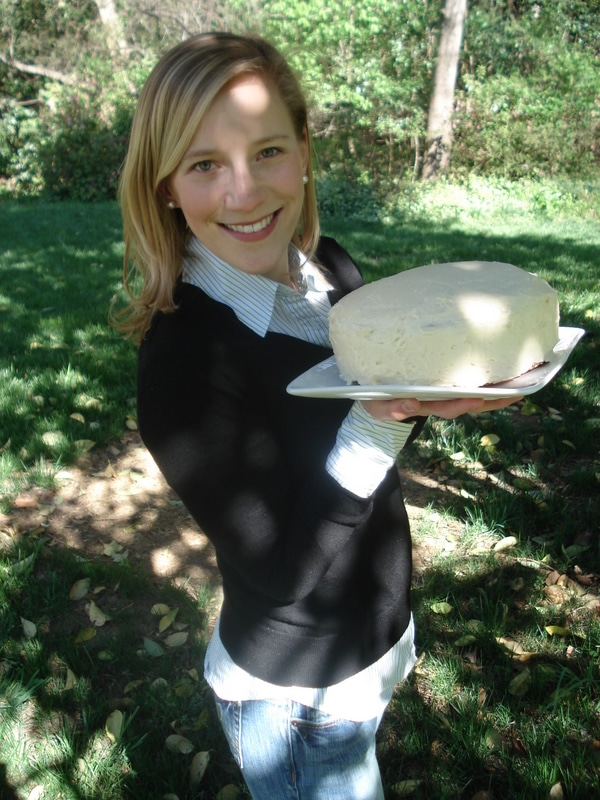
The Space In My Brain: Today
In the present day, I’m at a very different place in my life and my thoughts are heavily weighted toward my kids and my work. There is not as much room for what I would now consider to be fluffy, meandering sort of thoughts like, “maybe I will stroll to the market and get some kale for a salad tonight.”
Despite (or perhaps because of) my decreased focus on making so many daily decisions related to healthy living, I feel much healthier than I did 10 years ago. For me, I’ve found it’s best not to think about health all day. I think it’s healthy to live in the moment and go out to eat with friends (I can’t wait til that day comes!) and not think twice about what you’re ordering for dinner. That’s intuitive eating at its best.
Now that I have the benefit of hindsight and in recognition of my shift in thought patterns, I have tried to automate some areas of my life so that I can focus on what demands most of my attention. This means using meal services like Plenty or letting Blue Apron do my meal planning. We women can do it all, but not all at once.
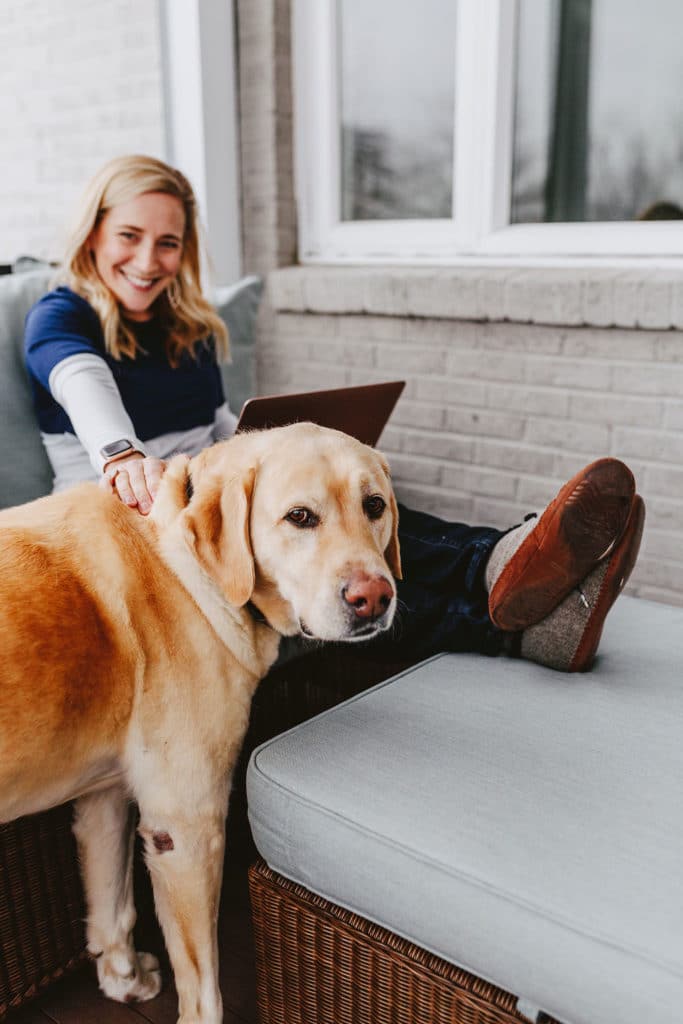
Thoughts Make Us, Identities Shape Us
Identity influences our daily habits, and I’ve long proclaimed that the energy we spend on daily habits are part of what shape us.
I recently listened to this episode of The Purpose Show Podcast and really connected with Jen Sincero’s comments about identity.
Jen talks about how when she wanted to quit smoking she had to change her identity.
Rather than identifying as “someone who quit smoking,” she had much better success identifying as someone who “cares about their pink healthy lungs.” Someone who values health first and foremost. That mindset enabled her to successfully quit smoking. (There is so much more in the podcast interview and her book, Badass Habits.)
While thoughts and emotions should theoretically be the easiest things to change because they typically require no money, time or action, they can also feel impossible to change because those things are rooted so deeply within us. If you want to change a thought, start changing the habits around it. It’s easier to add than subtract.
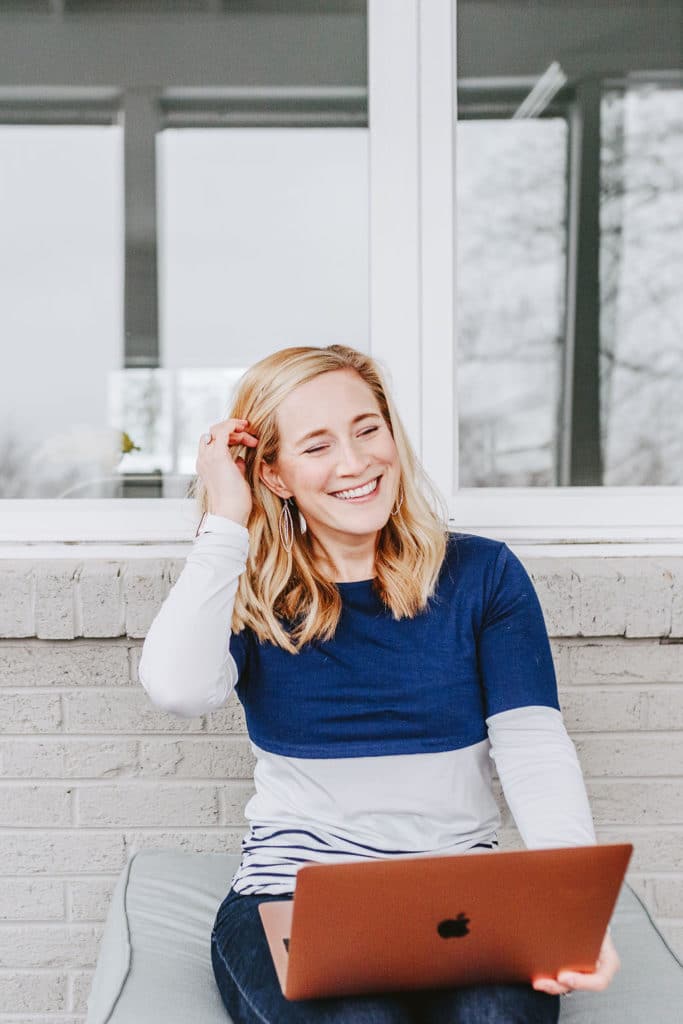
My Identity: Mom and Entrepreneur
Right now, most of my energy is spent on my children and my business(es). I identify most with the roles of Mom and Entrepreneur.
Because those are my strongest identities, they are my most frequent thoughts. Those thoughts lead to actions that create my reality.
My motherhood and entrepreneur identities are stronger than my nutrition identity at this time. I have guilt about this because my blog’s history is in food. But the truth is I’m just not as focused on food as I once was. These days, my passions lie in my family and building my businesses in new and creative ways.
When I have time to learn (though a podcast, book, or conversation), I want to learn more about the first two topics than I do about nutrition. While of course it sounds like a dream life to wake up and only have to think about what to make for lunch, I am ok with this shift because I don’t need to live and breathe nutrition topics to be healthy.
You never know where your identity might drift next and how that shift might affect your habits and thoughts. And vice versa.
What are your strongest identities?
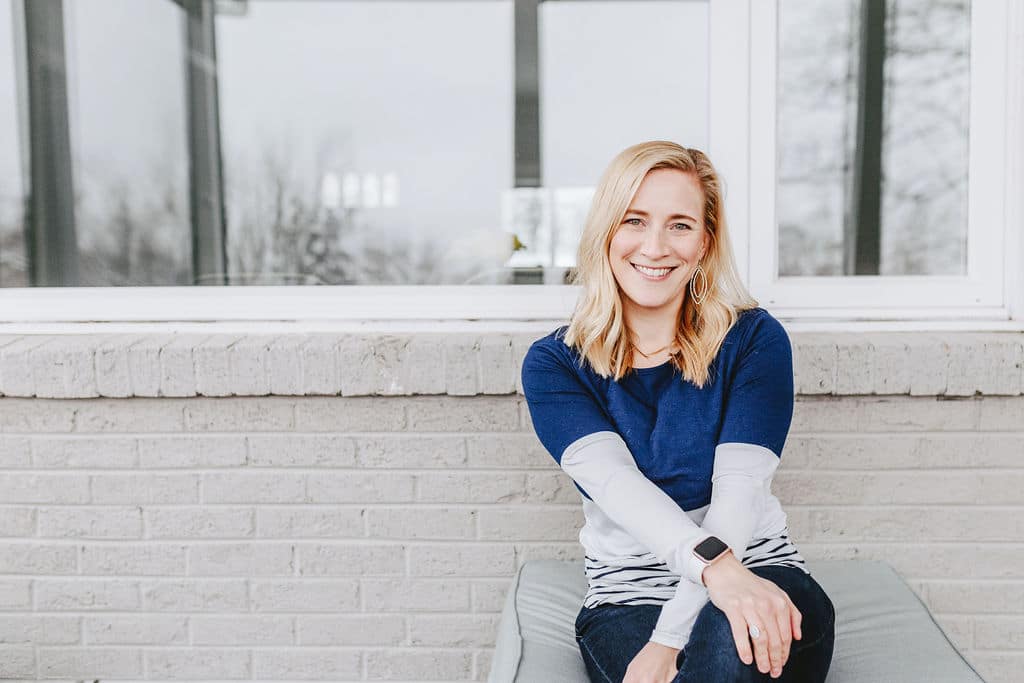
Photos by Marybeth Wells Photography


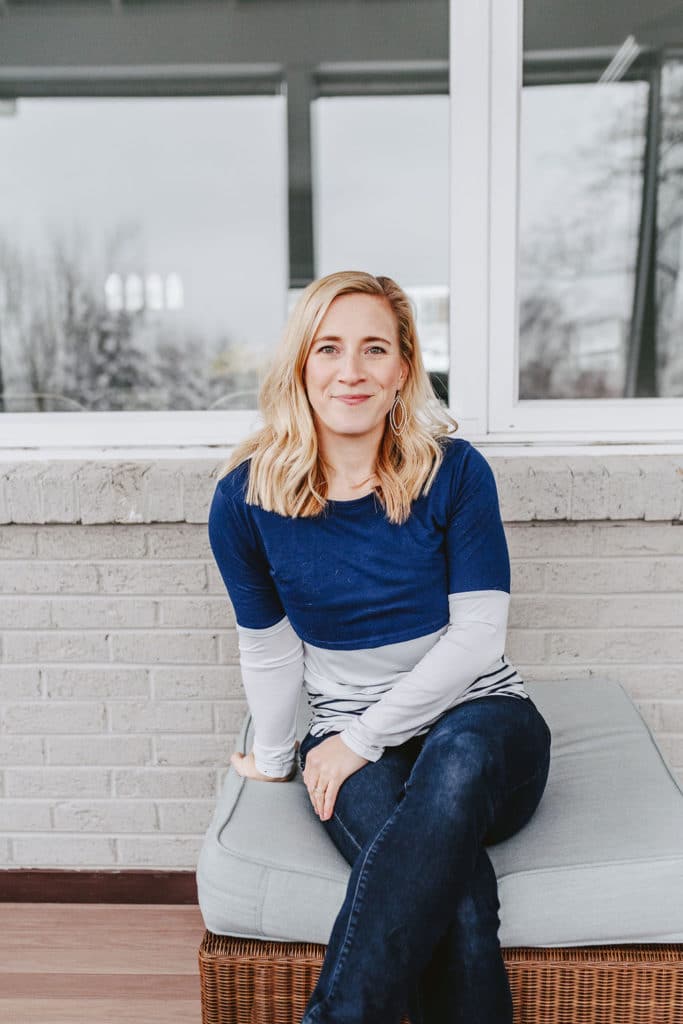
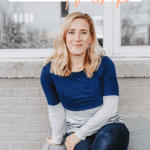
Jane says
Wow, thank you for this post and your vulnerability. We are all exactly who and where we need to be right now. Needed to read this today! As a longtime reader, I’ve loved your evolution and you always inspire me.
Kath Younger says
Thank you Jane <3
Ashley says
This post was really refreshing. I’ve been following along since 2009 and I appreciate the honesty in your journey.
Kath Younger says
Thanks Ashley
Emily says
I love these photos of you in the blue shirt! Would you mind sharing what brand it is, or where you got it? 😀
Kath Younger says
It’s actually a nursing shirt from Amazon that I still wear, and I checked earlier this week and it was no longer available 🙁
Kimberly says
This post is awesome! Love the honesty and vulnerability. I can relate.
Kath Younger says
Thank you!
Sarah says
Great post. I appreciate your honesty. I could relate to what you said, although health was never my all encompassing focus. Rather, I feel I used to be more career driven. Now, if I have spare time, I’m not necessarily looking up information related to my industry either. Motherhood really changed and balanced out my priorities -I find that I’m more focused on and desirous of whole life balance than just career success.
Charmaine Ng | Architecture & Lifestyle Blog says
Thank you for being so honest! 🙂
Charmaine Ng | Architecture & Lifestyle Blog
http://charmainenyw.com
Amanda says
Thank you for this post today. What a great reflection. I had to stop and think about my own “pie chart” of identity. Lately I feel like it’s been a consistent break up of thirds: being a mom, finances and ashamed to admit my eating disorder and disordered habits. I feel like the pandemic has forced my pie chart of identity into *larger chunks of less things* and it has allowed for more time spent on and thinking about the things I listed above. It is an interesting way to zero in on what really controls my actions and motivation during the day lately.
Kath Younger says
<3 I hope you are able to seek some help as the world opens up a bit
Sarah says
I found myself saying “YES YES YES” outloud when I read this paragraph:
“Despite (or perhaps because of) my decreased focus on making so many daily decisions related to healthy living, I feel much healthier than I did 10 years ago. For me, I’ve found it’s best not to think about health all day. I think it’s healthy to live in the moment and go out to eat with friends (I can’t wait til that day comes!) and not think twice about what you’re ordering for dinner. That’s intuitive eating at its best.”
I used to spend so much time thinking / worrying / obsessing about what I was going to order at lunch with my co-workers, if it was going to be “healthy” enough without seeming weird, etc. It’s so much more freeing, and healthy IMO, to spend LESS time thinking about food and more time enjoying it. Intuitive eating works!
Thanks so much for this post – love your hair and you look radiant!
Kath Younger says
So glad you could relate! I totally agree.
G says
Not related to the content, but I think you look very pretty in these pictures 🙂
Kath Younger says
Thank you!
K~ says
Thanks for this Kath. You look wonderful my dear, blue is your color. Great post.
have a great weekend.
K~
Mallory says
Good post. I will point out though that you can’t really “change” the majority of your thoughts. You can change your behaviors or how you react to your thoughts, and in turn, behavioral change impacts thought patterns as a whole.
Meghan says
Thanks for your vulnerability, Kath! Real adults change, and their priorities shift. I would never want to be the same person I was ten years ago.
Mallory, there are clear ways to change thoughts and thought patterns. For people with anxiety or intrusive thoughts, a good therapist or counselor can offer real strategies that can be so helpful! Just wanted to mention it in case any readers were struggling.
Mallory L Thomas says
I am a therapist specializing in CBT so I have a different philosophy about changing one’s thoughts. I also suffer from OCD so am more than well-versed in intrusive thoughts. Thought patterns is entirely different from thoughts themselves. Changing behavior and in turn changing thoughts is the cornerstone of cog behavioral research and accepting thoughts as they are rather than trying to actively change them is a principle of CBT as it relates to OCD and other anxiety disorders. Thanks!